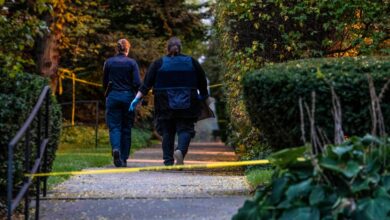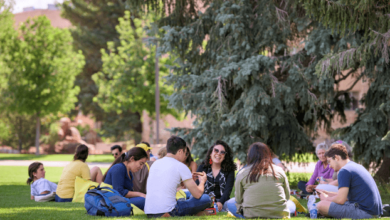Madison pop-up shop program faces uncertain future

Madison officials are exploring ways to rejuvenate a pilot program that provides storefront space to minority-owned businesses.
MicroMyco Growers owner Andrew Griffin talks what goes into mushroom growing in an urban setting, and how much product he produces for customers.
Started in October 2021, Culture Collectives’ goal was to support 13 small businesses by having each vendor rent a section of storefronts located at 440 and 444 State St. for a nominal fee to help cover reduced rents offered by building owner and developer JD McCormick Properties.
Culture Collectives was meant to give the microbusinesses a chance to see whether brick-and-mortar retail made sense for them. The three-month lease could be extended if the business owners decided to stay, and they could set their own hours.
The program is a collaboration between the city, JD McCormick and several business organizations. It was born out of a 2017 retail study that showed that pop-up shop concepts could attract more business to State Street’s continuously evolving shopping corridor.
People are also reading…

But there are currently only three shops in the space. Saran Ouk, city business resources manager, said there are many reasons for that.
Many vendors left because online retail was a more profitable avenue for them, she said.
And the program, Ouk said, was slated to stay on State Street until JD McCormick went through with plans to demolish several buildings along the 400 block of the Downtown shopping corridor in the summer of 2022, which have since stalled because the city refused the developer’s bid, sending it back to the drawing board.
JD McCormick Properties had been seeking to raze three two-story buildings at 428-430, 432-436 and 440-444 State. They would be replaced by a six-story building with 25 housing units and 6,285 square feet of commercial space in the basement and first floor.
Colin Smith, director of business development for JD McCormick, said Ouk and the developer have a meeting Nov. 30 to speak about the future of Culture Collectives.

“I would love to work with the city on the continuation of the Culture Collectives in whatever capacity they need,” Smith said in an email.
Because of the stalled demolition, the city has been paying rent for the two State Street storefronts — $2,900 monthly — since June 2022. Ouk said that money is coming from the $3.9 million for economic development the city received through the American Rescue Plan Act.
Meanwhile, the city is exploring various avenues for keeping Culture Collectives afloat, Ouk said, but everything remains up in the air.
“I would say with all the uncertainty at this time, we are interested in continuing the pop-up shop program,” she said.
That will depend on whether storefronts are available and if there is money to run it.

A survey done last summer in partnership with UW-Madison’s Center for Community and Nonprofit Studies asked vendors what they thought of the program and how it could do better.
The city’s land bank program could help identify affordable commercial space, but right now it is focused on the pressing need of affordable housing, Ouk said.
“We are currently in the process of interviewing applications for the Biz Ready program. This program might also help us identify future vendors and pop-up shop opportunities.”
Survey sent
For the survey, UW-Madison emailed 13 Culture Collectives vendors and 10 program collaborating partners to to share their experience about the program.
Five vendors and four partners participated.

The survey identified several strengths of the Culture Collectives program, including providing vendors an opportunity to build a brand for their business and expand their customer base, as well as to collaborate with one another. The program allowed business owners to test a brick-and-mortar model and brought diversity to the shops on State Street.
Weaknesses identified in the survey included “unclear or changing communication” and a sense of feeling pitted against other business owners. There were issues with sharing a building and a lack of marketing for the program, which contributed to low sales.

Recommendations included better organization and increased financial support and mentorship to vendors, as well as better marketing.
Hope for revival
One of the original and remaining vendors, Josey Chu, owner of Madame Chu, a business selling Southeast Asian condiments, said she doesn’t see many customers at the site.
Chu said she’s the only vendor occupying 444 State St. at this time, and to increase profits and foot traffic she has tried to diversify her business by selling various wares besides condiments, from non-alcoholic beverages to backpacks for children.
“We don’t even have a website,” Chu said of Culture Collectives. “We only have a web page that’s not even updated.”
But “we hope to have a comeback,” Chu said, adding that the program has taught her valuable skills about operating a brick-and-mortar retail space. “The city has been supportive. It’s just unfortunate that it’s a struggle right now to run a brick-and-mortar retail space.”
State Journal reporter Dean Mosiman contributed to this report.





